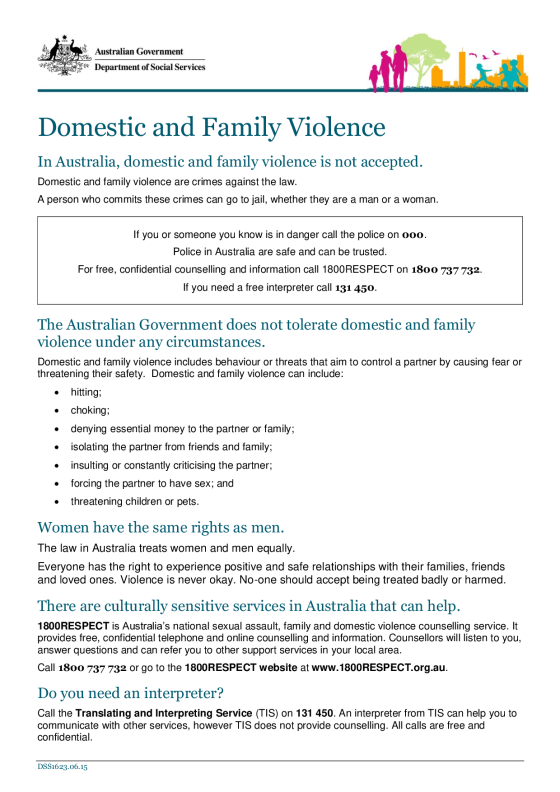About this resource
In Australia, domestic and family violence is not accepted.
Domestic and family violence are crimes against the law.
A person who commits these crimes can go to jail, whether they are a man or a woman.
If you or someone you know is in danger call the police on 000.
Police in Australia are safe and can be trusted.
For free, confidential counselling and information call 1800 RESPECT on 1800 737 732.
If you need a free interpreter call 131 450.
The Australian Government does not tolerate domestic and family violence under any circumstances.
Domestic and family violence includes behaviour or threats that aim to control a partner by causing fear or threatening their safety. Domestic and family violence can include:
- hitting;
- choking;
- denying essential money to the partner or family;
- isolating the partner from friends and family;
- insulting or constantly criticising the partner;
- forcing the partner to have sex; and
- threatening children or pets.
Women have the same rights as men.
The law in Australia treats women and men equally.
Everyone has the right to experience positive and safe relationships with their families, friends and loved ones. Violence is never okay. No-one should accept being treated badly or harmed.
There are culturally sensitive services in Australia that can help.
1800RESPECT is Australia’s national sexual assault, family and domestic violence counselling service. It provides free, confidential telephone and online counselling and information. Counsellors will listen to you, answer questions and can refer you to other support services in your local area.
Call 1800 737 732 or go to the 1800RESPECT website at www.1800RESPECT.org.au.
Do you need an interpreter?
Call the Translating and Interpreting Service (TIS) on 131 450. An interpreter from TIS can help you to communicate with other services, however TIS does not provide counselling. All calls are free and confidential.
